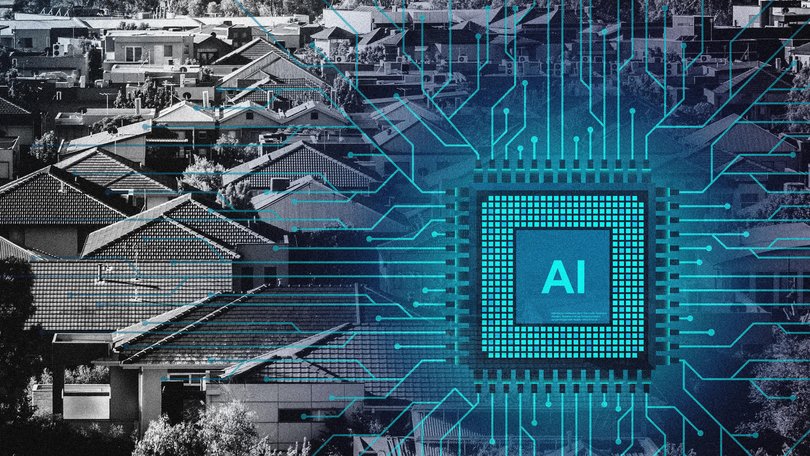Rise in artificial intelligence has middle class worried about being left homeless
The rise of AI has raised alarm bells over the thought of rapidly advancing technology taking not just peoples jobs, but their homes as well.

Alarm over the faster-than-expected rise of Artificial Intelligence is not new, but some people are now linking it to property.
Apparently AI is no longer just coming for your job — it’ll also leave you homeless.
Some of the more hysterical commentary is that it’s a silent wrecking ball poised to hollow out the middle class, destroy our ability to pay the mortgage and bulldoze every pillar holding up the real estate market.
Sign up to The Nightly's newsletters.
Get the first look at the digital newspaper, curated daily stories and breaking headlines delivered to your inbox.
By continuing you agree to our Terms and Privacy Policy.One person who posted on one of my recent stories — let’s call her Anna because it’s not nice to call someone an Apocalyptic Buzzkill — pointed out that white collar roles like accountants, paralegals, marketers, finance workers are among the occupations already being replaced by faster, cheaper AI systems.
And as the middle class eventually collapses amid mass job losses, she warned, it will take the property market down with it.
I disagree with Anna’s forecast about the market (and suspect AI had a hand in composing it anyway) but I am not discounting some some nuggets of truth in her comment.
For starters, I think we are all a little amazed at the speed at which AI is replacing or re-shaping jobs.
One public servant friend told me last week his workplace won’t know what work to give next year’s graduate recruit because AI is already doing it.
Some architects use it daily to complement their work, GPs use it to take patient notes and AI-powered divorce lawyers have existed in some parts of the world for more than a decade.
Another friend summed up the cold efficiency of this brave new world with an anecdote about his visit to a factory in Singapore, where robots were assembling robots. As eyesight was not required in the process, the factory owners turned the lights off to save on electricity costs.
The speedy rise of AI is even more alarming when you consider that we are only at the Artificial Narrow Intelligence phase of development.
In a few years the potential for job displacement will be bigger, with the anticipated development of Artificial Super Intelligence, which is expected to surpass humans in every field, from science to creativity, emotions and effective decision-making.
But still, while I wouldn’t personally invest in an office building, I still do not see any of the upcoming changes destroying the residential property market.
Real estate guru Damian Collins agrees, making the point that technology has been putting people out of work since the invention of the wheel.
His view is that humans will adapt and evolve, re-skill and reinvent every time new technology changes the playing field, just as they always have.
Collins overseas a $1 billion property empire, so you could say he has a vested interest property values continuing to increase. But he also has more reasons than most to analyse every potential impact.
And his view is that Perth’s ongoing housing shortage and population growth will continue to exert the biggest influence on its property market over the next five years — at least. The Australian Bureau of Statistics said the State grew by just over 70,000 people last year — about 2.4 per cent.
If there are 2.5 people for every home, we needed to build 28,120 homes just to keep up.
But ABS also tells us, only 20,639 homes were built, leaving a shortfall of about 8000 houses, and adding to shortfalls every year since COVID hit. It will take about five years to build ourselves back to equilibrium.
Collins also expects there will be a period of workforce adjustment in the medium term as some skilled workers re-train. But he believes that if unemployment were to rise substantially, the Reserve Bank of Australia would shore up the market by reducing the cash rate as it did during COVID.
The World Economic Forum says 41 per cent of companies plan to reduce workforce and replace workers with AI by 2030. But it says AI will lead to a 7 per cent net increase in jobs, by replacing 8 per cent of current jobs and creating 14 per cent more.
Of course, new jobs are unlikely to land precisely as old ones disappear, so there will be winners and losers.
It may turn out that tech-savvy millennials — currently priced out of the property market — end up getting the last laugh.
Perhaps they will have skills that pay the most, allowing them to buy mansions from out-of-work baby boomer surgeons.
Wouldn’t that be ironic?
Kim Macdonald is the property editor at The West Australian.
